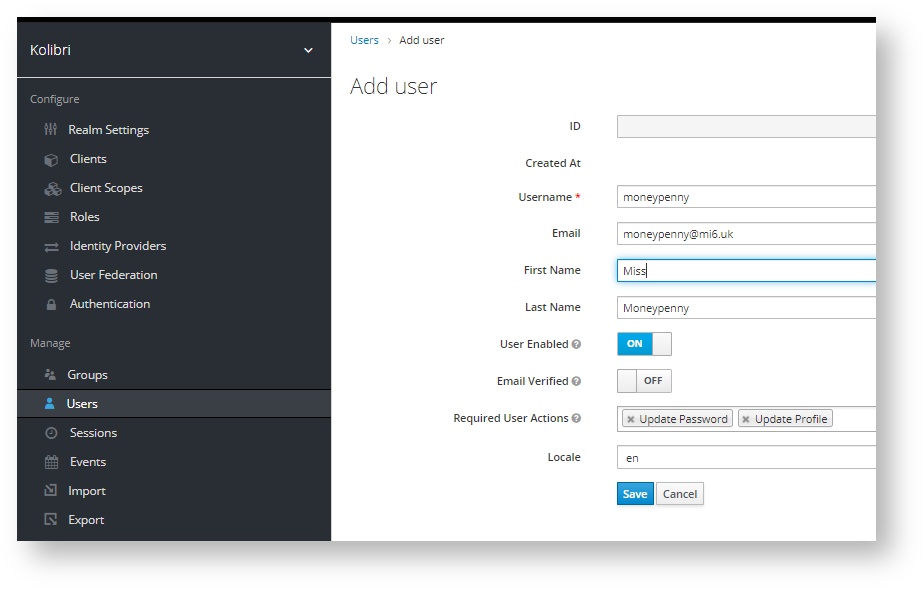| As of Version | product version 2020 Winter | component version 1.0 | ||||||
|---|---|---|---|---|---|---|---|
| Request Method | POST | ||||||
| Response Format | JSON | ||||||
| Description | Creates a new user with the given properties for the specified tenant.
The properties for the new user are passed in JSON format. In the response, the user ID is returned again in JSON format. The only required parameter is It is recommended to deactivate users instead of deleting them. Their user names might be required for compliance reasons. New users are created with the Keycloak settings shown in the screenshot below (click to enlarge). The first actions newly created users have to carry out are specified under Required User Actions. In this configuration, these are Update Password and Update Profile. Hence, new users have to register by setting a password and other user data. The URL to the registration page is specified in the e-mail invitation. yuuvis® Momentum client as reference implementation displays the user's name in the following format: Meaning of the response status codes:
| ||||||
| Request Example | Will be introduced with the Release Candidate with the tag 1.1.0-rc2: If the
{
"email": "example@exampleprovider.de",
"username": "mrexample",
"firstName": "Examplename",
"lastName": "Examplesurname",
"roles": ["role1","role2"],
"groups": ["group3","group1","group5"],
"enabled": true,
"password": "asecurepassword"
}
| ||||||
| Response Example | {
"id": "a00a0bb1-1234-5c66-7890-00fbb1c1a222"
}
|
Skip to end of banner
Go to start of banner
POST /tenant-management/api/system/tenants/{tenant}/users
Manage space
Manage content
Integrations
